Categories: Electrical Reviews
Number of views: 1542
Comments on the article: 0
The main types of electrical extension cords for home
Not always a stationary outlet is exactly at the place where you want to connect and use the appliance. Sometimes we just do not have enough wire length, for example, while working with a drill, or we decided to put the refrigerator three meters away from the wall outlet.
There is no way to do without an extension cord. For this, it was created - to allow us to use electrical appliances in places remote from stationary sockets. Needless to say, about connecting a computer, which alone requires several outlets at once. And where to get them, if not on the extension cord?
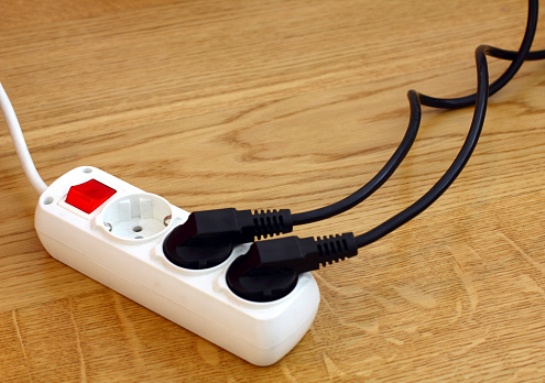
The use of an electrical appliance with an extension cord can be permanent, as in the example with a computer, or temporary, as in the example with a drill. For a computer, we need an extension cord with a multi-socket outlet, and even equipped with some sort of surge protector, if only to press the button and immediately disconnect the monitor, system unit, speakers, printer, etc. etc. But for a drill, the most common extension cord without a filter and without a button is suitable.
In general, extension cords are different: multi-seat and single, with and without a switch, with and without a filter, with different lengths of network wires, on reels, etc. But first things first.
Simple household extension cord
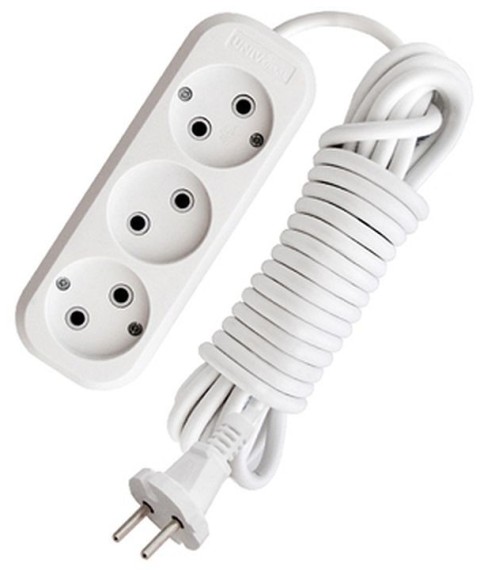
As the simplest option, when the problem of power supply is being solved without the need to somehow protect the device from interference and the switch button is not needed at all, a simple household extension cord will do. Such extension cords are multi-seat and single, designed for different powers: up to 1 kW, up to 2.2 kW or more than 2.5 kW. The length of the wire can be from 3 to 10 meters.
The maximum allowable power for the connected device depends on the cross section of the extension cord.
Please note that there is no ground contact here. Such an extension cord option is the most economical, while the least reliable in terms of the immunity of your equipment. This option is suitable for temporary use of simple, unpretentious electrical appliances like a fan.
Ground extension cord
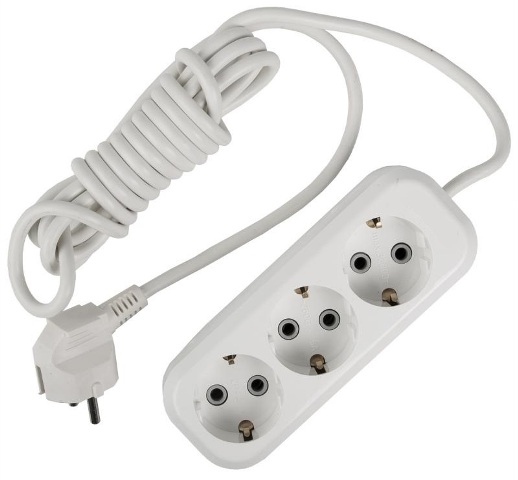
An extension cord with grounding contacts, designed to connect from 3 to 6 Euro-plugs, will protect the user from electric shock.
If there is a corresponding output on the plug of the device, then in the event of a phase falling on the conductive housing, the protection in your room should work. In addition, the mounting socket on such an extension cord holds the plug very tightly, protects the extension sockets from dust and dirt.
Extension cord with button
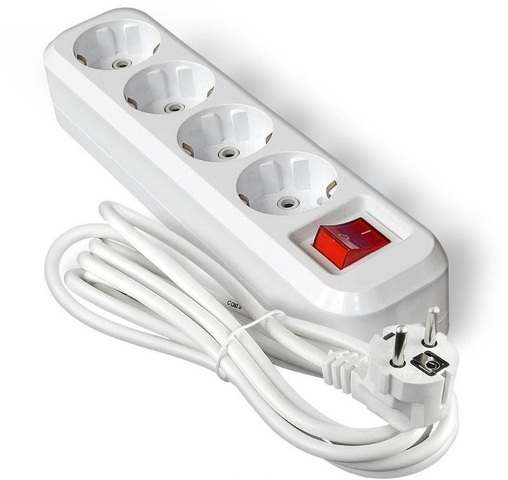
An extension cord with a button is convenient in situations where several devices must be turned off, turned on and used at the same time, and each time you pull the plug out of the socket, you see, it’s not convenient and not always advisable.
Given that many household appliances have built-in filters in the power supply circuits, in many cases, such an extension cord with a button acts as a profitable alternative to a power strip. However, it is better not to neglect protection.
Network filter
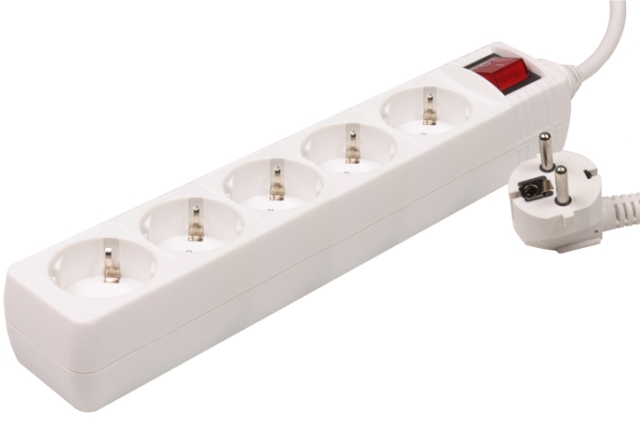
To make sure your devices are protected from network interference, it is still best to use a surge protector. Due to the features of its design (the presence of a protection circuit at the input), your equipment will get a chance not to remain defenseless in the event of harmful interference in the network.
Inside, in addition to contacts for sockets, are installed: varistor, capacitor and inductor. Impulse interference from lightning, due to an accident at a substation, but you never know why, will be filtered out and will not cause much harm to your device.
Often this type of extension cord has a fuse that is easy to replace without dismantling the outlet. Usually the power filter button has a backlight, so as not to forget to turn off the power.
Portable extension cord
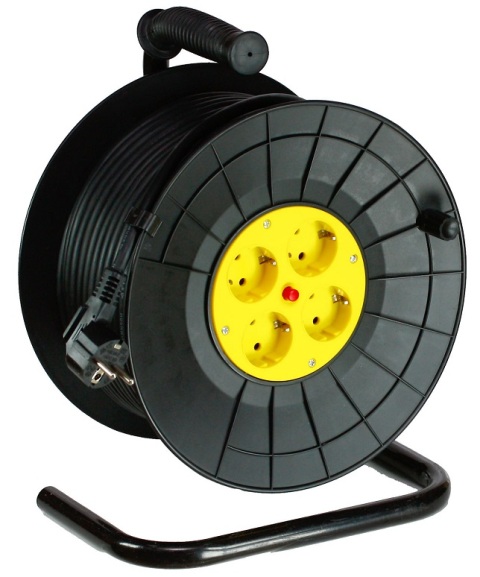
Portable extension cords on coils are suitable for connecting various equipment in production, for powering power tools at construction sites. The length of the wire they reach 60 meters, and the permissible supplied power exceeds 3.5 kW. The housing is protected against splashes and moisture; sockets may have covers. There is a handle for transporting the extension cord.
See also at bgv.electricianexp.com
:
